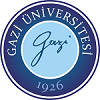
Send us your opinions, requests and evaluations.
Faculty of Science Education and Training Policy
The Biology, Physics, Chemistry, Statistics and Mathematics Departments of the Faculty of Science have a wide range of vocational programs and to educate individuals who research, learn, analyze, innovative, pioneer, entrepreneurial and who can take an active role in the field of basic science, public and industrial world. is in the direction. Since the day it was founded, the Faculty of Science has adopted the understanding of qualified education and training at undergraduate and postgraduate level, constantly improving itself with the innovations of the age, national and international recognition and respectability. The Faculty of Science aims to continuously develop its infrastructure technologically in terms of both educational tools and laboratory equipment in order to train its students in line with the demands of the country and society. Also,
Faculty of Science International Policy
It is one of my most important policies to be known at the international level with its five different departments and to be a faculty preferred by world students. To ensure and expand student mobility in order to share cultural, social and learning approaches with world students, especially in Asia and Europe. In addition, it is one of our greatest efforts as a faculty to increase the recognition of both our country and the name of Gazi University through the exchange of faculty members with other universities abroad and the work they do at the international level. In this context, by encouraging international projects, to carry out international projects in different fields, to increase the number of both students and faculty members in programs such as Erasmus and Mevlana exchange program,
Social Contribution Policy of the Faculty of Science
It is the Social Contribution Policy of the Faculty of Science that the departments in the Faculty respond not only to graduates but also to the needs of the society in every field, with the undergraduate and graduate education and training they provide at the level needed by the country and the world. The Faculty of Science aims to make significant contributions to the country's economy with its innovative products and patents in different fields, as well as its knowledge production policies that will provide solutions to the problems of science and society, increase the level of education and ensure welfare, for product development that can provide regional and national contributions within the framework of university-industry cooperation.
In the Faculty of Science, the importance of research in science is given both theoretically and practically from the first year in many courses within the framework of undergraduate education, and it is aimed to train researcher students who are needed in our country, who produce solutions to social needs, who know the interdisciplinary perspective and who can interpret this information. In the Faculty of Science, which serves to train individuals with high awareness who can take part in innovative and pioneering research at the national and international level, graduate students are involved in R&D studies in different science fields supported by projects. Increasing the quality of R&D studies and therefore the number of national and international projects in each Department of the Faculty of Science is the Research Policy of the Faculty.
In addition to 52 research and student laboratories, there are 4 computer laboratories within our faculty, and both our undergraduate and graduate students have the opportunity to conduct applied work and research in different fields. In addition, this policy is successfully maintained with internship opportunities offered to undergraduate students both in the department and in different institutions. The existence of FARABI and ERASMUS programs strengthens our research policy. In undergraduate and graduate education, not only BAP sourced but also KOSGEB, TAEK, TAGEM, TÜBİTAK, TSE, TÜİK, BOREN etc. İt is among our priorities to increase the number and quality of research conducted jointly with institutions such as YÖK and other YÖK institutions.

Send us your opinions, requests and evaluations.